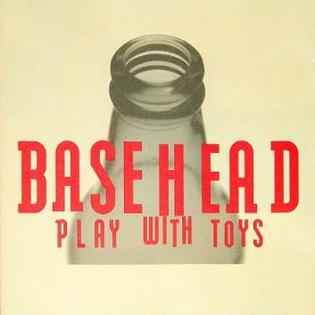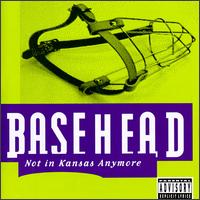
A Tribe Called Quest was an American hip hop group formed in Queens, New York City, in 1985, originally composed of rapper and main producer Q-Tip, rapper Phife Dawg, DJ and co-producer Ali Shaheed Muhammad, and rapper Jarobi White. The group is regarded as a pioneer of alternative hip hop and merging jazz with hip hop, influencing numerous hip hop and R&B musicians.

Artis Leon Ivey Jr., known by his stage name Coolio, was an American rapper. He was best known for his single "Gangsta's Paradise" (1995), which won a Grammy Award, and was credited for changing the course of hip hop by bringing it to a wider audience. Other singles included "Fantastic Voyage" (1994), "1, 2, 3, 4 " (1996), and "C U When U Get There" (1997). He released nine albums, the first three of which achieved mainstream success: It Takes a Thief (1994), Gangsta's Paradise (1995), and My Soul (1997). Coolio first achieved recognition as a member of the gangsta rap group WC and the Maad Circle. Coolio sold 4.8 million albums in the U.S.

S.C.I.E.N.C.E. is the second studio album by American rock band Incubus. It was released on September 9, 1997, by Epic and Immortal Records. The album was certified gold by the RIAA, and is the second and final release to feature Gavin Koppel, who first appeared on the 1997 Enjoy Incubus EP. It has been occasionally considered the band's proper debut album, due to the nature of their independent release Fungus Amongus.
Funk metal is a subgenre of funk rock and alternative metal that infuses heavy metal music with elements of funk and punk rock. Funk metal was part of the alternative metal movement, and has been described as a "brief but extremely media-hyped stylistic fad".
G-funk, short for gangsta funk, is a sub-genre of gangsta rap that emerged from the West Coast scene in the early 1990s. The genre is heavily influenced by the synthesizer-heavy 1970s funk sound of Parliament-Funkadelic, often incorporated through samples or re-recordings. It is represented by commercially successful albums such as Dr. Dre's The Chronic (1992) and Snoop Dogg's Doggystyle (1993).
Basehead, also known as dc Basehead and Basehead 2.0, is an American alternative hip hop and rock group formed by Michael Ivey in 1992. Ivey serves as the group's songwriter and leader, performing vocals and various instruments. Basehead's 1992 debut album, Play with Toys, was recorded at Ivey's home with various studio musicians. Ivey formed a touring band for live performances, which contributed to Basehead's second album, Not in Kansas Anymore. The group's current lineup consists of Ivey, drummer Aaron Burroughs and bassist Brendan Ciotta.
Nathaniel Dwayne Hale, known professionally as Nate Dogg, was an American singer and rapper. Hale gained recognition for providing guest vocals for a multitude of hit rap songs between 1992 and 2007, earning the nickname "King of Hooks".

Rap rock is a music genre that developed from the early to mid-1980s, when hip hop DJs incorporated rock records into their routines and rappers began incorporating original and sampled rock instrumentation into hip hop music. Rap rock is considered to be rock music in which lyrics are rapped, rather than sung. The genre achieved its greatest success in the late 1990s and early 2000s.

Vaudeville Villain is the third studio album by British-American rapper-producer MF Doom, released on September 16, 2003 under the pseudonym of Viktor Vaughn. All of the tracks are produced by Sound-Ink record label members Heat Sensor, King Honey, and Max Bill, with the exception of "Saliva", produced by RJD2.

The Bliss Album...? is the second studio album by American hip hop duo P.M. Dawn. It was released on March 23, 1993, by Gee Street and Island Records. Although some critics considered it less successful than the duo's first record, The Bliss Album...? received positive reviews and produced two hit singles—"I'd Die Without You" and "Looking Through Patient Eyes". It was voted the 12th best album of 1993 in The Village Voice's annual Pazz & Jop critics poll.

Play with Toys is the debut album by American alternative hip hop group Basehead. It was voted one of the top 50 albums of 1992 in Q magazine, and listed as number 43 in NME's top albums of 1992.
Mandolyn Wind Ludlum, better known by her stage name Mystic, is an American singer and rapper from the San Francisco Bay Area. After touring and recording with Digital Underground, she released her debut solo album in 2001.

Not in Kansas Anymore is the second album by the group Basehead, released in 1993 via Imago.

Pieces of a Man is the debut studio album by American poet Gil Scott-Heron. It was recorded in April 1971 at RCA Studios in New York City and released later that year by Flying Dutchman Records. The album followed Scott-Heron's debut live album Small Talk at 125th and Lenox (1970) and departed from that album's spoken-word performance, instead featuring compositions in a more conventional popular song structure.
Hip hop or hip-hop, formerly as disco rap, is a genre of popular music that originated in the early 1970s from the African American community. Hip-hop music originated as an anti-drug and anti-violence genre consisting of stylized rhythmic music that often accompanies rapping, a rhythmic delivery of poetic speech. In the early 1990s, a professor of African American studies at Temple University said, "Hip-hop is something that blacks can unequivocally claim as their own." By the 21st century, the field of rappers had diversified by both race and gender. The music developed as part of the broader hip-hop culture, a subculture defined by four key stylistic elements: MCing/rapping, DJing/scratching with turntables, breakdancing, and graffiti art. While often used to refer solely to rapping and rap music, "hip hop" more properly denotes the practice of the entire subculture. The term hip hop music is sometimes used synonymously with the term rap music, though rapping is not a required component of hip hop music; the genre may also incorporate other elements of the culture, including DJing, turntablism, scratching, beatboxing, and instrumental tracks.

"Night of the Living Baseheads" is the third single released in 1988 by hip hop group Public Enemy, from their critically acclaimed album It Takes a Nation of Millions to Hold Us Back. The lyrics deal with the effects of crack cocaine on African-Americans during the 1980s crack epidemic, referring to the slang for freebase cocaine "base" or crack cocaine. The song reached #62 on the U.S. Hot R&B/Hip-Hop Singles & Tracks.
Imago Records was an American independent record label, which was active during the early 1990s. It was started by Terry Ellis after he left his previous record label, Chrysalis Records.

Kill the Vultures is an American hip hop group from Minneapolis, Minnesota formed in 2005.
Progressive rap is a broad subgenre of hip hop music that aims to progress the genre thematically with socially transformative ideas and musically with stylistic experimentation. Developing through the works of innovative US hip hop acts during the 1980s and 1990s, it has also been known at various points as conscious, underground, and alternative hip hop.

Drums is a studio album by American hip hop group Oddjobs. It was released November 9, 2002, on Third Earth Music.












